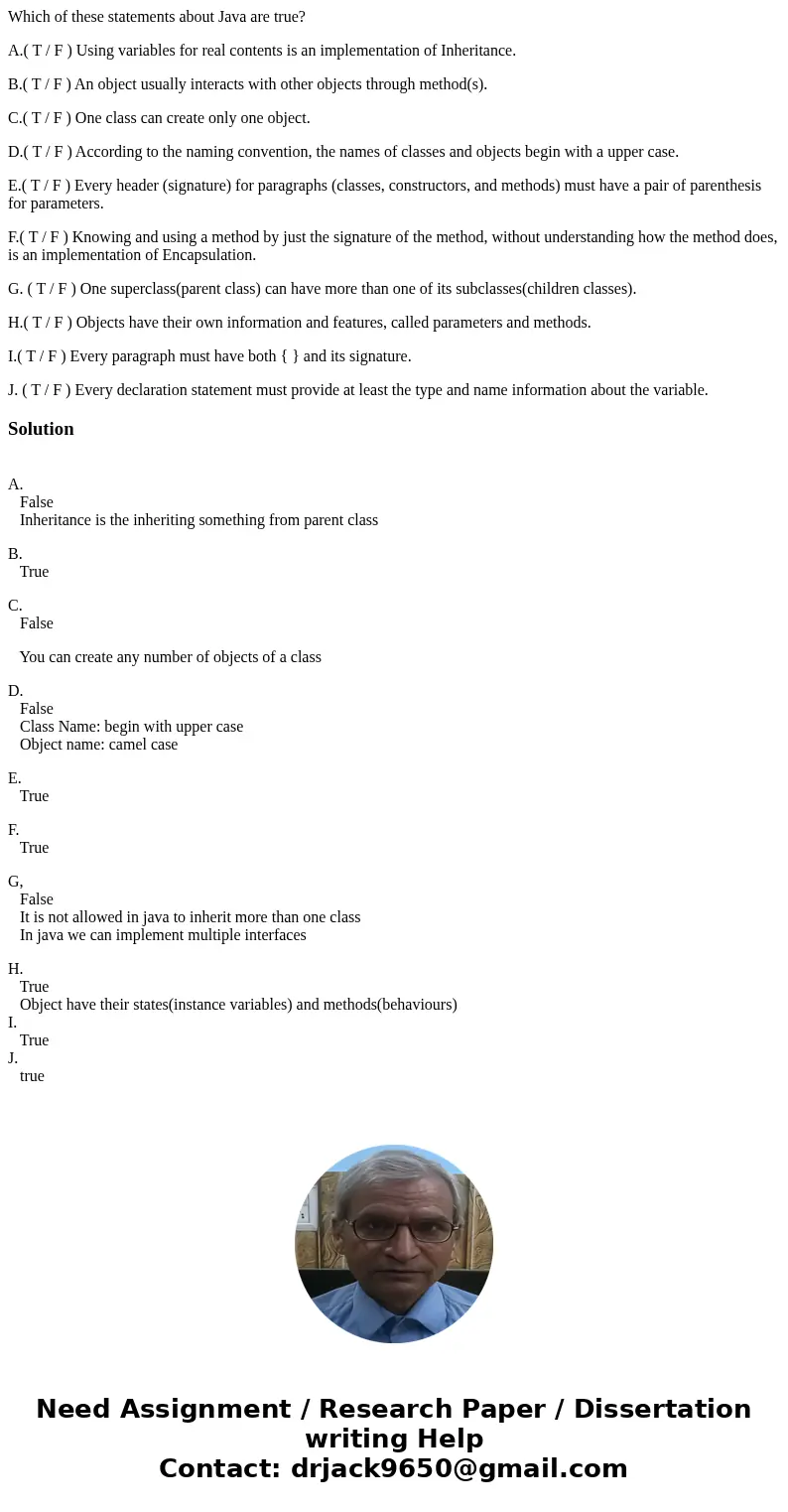Which of these statements about Java are true A T F Using
Which of these statements about Java are true?
A.( T / F ) Using variables for real contents is an implementation of Inheritance.
B.( T / F ) An object usually interacts with other objects through method(s).
C.( T / F ) One class can create only one object.
D.( T / F ) According to the naming convention, the names of classes and objects begin with a upper case.
E.( T / F ) Every header (signature) for paragraphs (classes, constructors, and methods) must have a pair of parenthesis for parameters.
F.( T / F ) Knowing and using a method by just the signature of the method, without understanding how the method does, is an implementation of Encapsulation.
G. ( T / F ) One superclass(parent class) can have more than one of its subclasses(children classes).
H.( T / F ) Objects have their own information and features, called parameters and methods.
I.( T / F ) Every paragraph must have both { } and its signature.
J. ( T / F ) Every declaration statement must provide at least the type and name information about the variable.
Solution
A.
False
Inheritance is the inheriting something from parent class
B.
True
C.
False
You can create any number of objects of a class
D.
False
Class Name: begin with upper case
Object name: camel case
E.
True
F.
True
G,
False
It is not allowed in java to inherit more than one class
In java we can implement multiple interfaces
H.
True
Object have their states(instance variables) and methods(behaviours)
I.
True
J.
true

 Homework Sourse
Homework Sourse